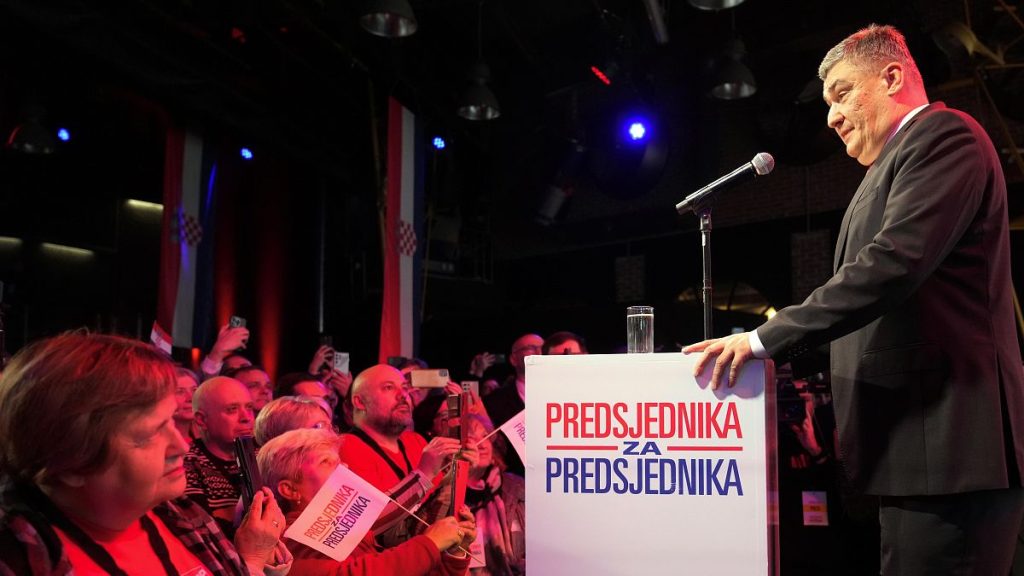In Croatia’s recent presidential election, incumbent President Zoran Milanović emerged as the front-runner with 49% of the votes, while his main challenger, Dragan Primorac of the ruling conservative HDZ party, trailed far behind with 19%. Milanović, a left-leaning candidate, fell short of an outright win and will face a runoff against Primorac in order to secure another five-year term. Pre-election polls had predicted that these two candidates would advance to the second round as none of the eight contenders were projected to receive more than 50% of the vote.
Milanović, an outspoken critic of Western military support for Ukraine, is often compared to Donald Trump for his confrontational communication style with political rivals. As a former prime minister of Croatia, he is the most popular politician in the country. Milanović’s populist approach has led to ongoing conflicts with current Prime Minister Andrej Plenković, who has portrayed the election as a choice between Croatia’s future in the EU and NATO. Plenković has labeled Milanović as “pro-Russian” and a potential threat to Croatia’s international reputation.
Despite the largely ceremonial role of the presidency in Croatia, the elected president holds political authority and serves as the country’s supreme military commander. Milanović has criticized NATO and EU support for Ukraine, advocating for Croatia to remain neutral in global conflicts. He has blocked Croatia’s involvement in a NATO-led training mission for Ukraine, emphasizing that Croatian soldiers should not participate in “somebody else’s war.” In contrast, Primorac has emphasized that Croatia’s place is in the West, aligning with NATO and the EU.
Primorac’s presidential campaign has been overshadowed by a high-profile corruption case that resulted in the imprisonment of Croatia’s health minister just weeks before the election. Despite this controversy, Primorac has presented himself as a unifying figure and has emphasized the importance of Croatia’s international positioning and unity among its citizens. Meanwhile, conservative independent candidate Marija Selak Raspudić, who focused on economic struggles, corruption, and population decline, trailed behind in the polls leading up to the election.
The presidential election in Croatia marks the country’s third major vote of the year, following parliamentary elections in April and the European Parliament balloting in June. With Milanović and Primorac advancing to the second round of voting, the runoff will determine who will lead Croatia for the next five years. The election has been characterized by debates over Croatia’s international alliances, corruption scandals, and the candidates’ visions for the country’s future. Ultimately, the outcome of the second round will shape Croatia’s trajectory in the EU and NATO, as well as its stance on global conflicts and domestic issues.













